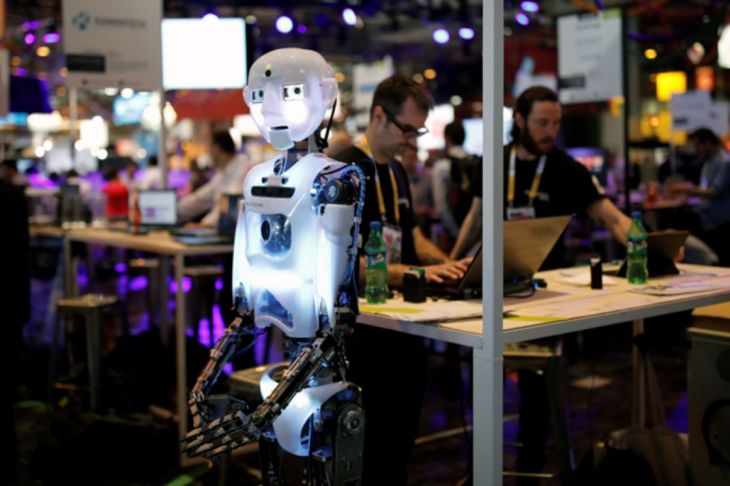The digital revolution and Artificial Intelligence (AI), which were once thought of as “the future”, are already here and playing an increasing role in our lives.
As I wrote in my last article, this is transforming society as much as, if not more than, any revolution that ever came before it.
The Guttenberg revolution of the fifteenth century saw the printing press create new generations of literati. It reduced the power of the Catholic Church’s monopoly of information. It led directly to the Age of Reason that led to new systems of thinking and governance. It was followed by the Industrial Revolution that saw the emergence of manufacturing, the collapse of feudal society and the migration of millions from villages to cities.
The growing prosperity was accompanied by hardships for many as people gave up their agriculturally based subsistence economy to seek more freedom and employment in exchange for living in tenements and learn how to manage machines.
Modern governance was at a nascent stage and was not prepared to adapt and develop social welfare systems and policies to address the challenges of rapid urbanization.
Today we face a similar challenge.
Examples such as Uber and Lyft, show how digital platforms have created massive disruptions in the transportation industry basically redefining competition and quality of service from the previously moribund taxi industry.
Adapting to disruptive technologies is something that many of us will have to address as digital platforms become more prevalent and affect how we do business and earn a living.
These tectonic transformations could result in massive social upheavals that will affect us all. Leading this revolution and developing the policies that will help manage the massive transition that we are undergoing is the main challenge facing our political and private sector leaders as well as each of us as individuals.
Managers and workers everywhere in most all industries will need to develop new skills or seek new careers.
Who will coordinate the retraining of these workers so that they can integrate successfully into the new economy?
Most elected officials are not as familiar as they need to be with many of the challenges posed by this digital revolution and AI. Their focus is usually on the next election while the challenges posed require long term planning and action.
Governments must develop the necessary national and international institutions to create the massive retraining programs required to address the impact of AI on current employees while also educating citizens on the need to adopt new mentalities and abilities to meet the future head on. At the same time, public education systems in most countries must address the lack of curricular focus and pedagogical strength needed to provide students with the tools required to flourish.
The private sector already participates in this new economy, investing in the technology and training required for its employees to manage new systems and techniques. But it must also work directly with government to develop the educational architecture that so that students can develop the skills to manage the new technologies and be better prepared to enter the work force.
One way for the private sector to establish good governance models is to partner with non-governmental organizations (NGO’s) to reach those in need of training and support. Some, like Friendship Bridge in Guatemala, are planning to provide women of limited means with access to technology. The objective is to train them to use technology as a tool to enhance their ability to earn and manage money.
It is this type of innovative thinking that can help many around the world to adapt to the evolving technological economy regardless of their socio-economic situation. Government, civil society, and the private sector can work together to create the knowledge base and synergy required to meet and manage the challenges ahead.
Former President John F. Kennedy once said that the Chinese word for crisis is composed of two letters – one signifying danger and the other opportunity.
This is the time for all sectors of society to come together and create governance models in which all play a role. Absent this, AI will continue to create fear and uncertainty, and this will affect us all.
Edición: Laura Espejo
La alcaldesa Cecilia Patrón informó que se incorporó un turno vespertino dirigido a niñeces de 6 a 10 años
La Jornada Maya
La gobernadora atribuyó a ''malos entendidos'' las diferencias entre los legisladores de su partido
La Jornada
La estrategia contempla inocular de manera prioritaria a infantes de 12 meses, 18 meses y 6 años de edad
La Jornada
La minuta se envió al Senado para su ratificación
La Jornada
